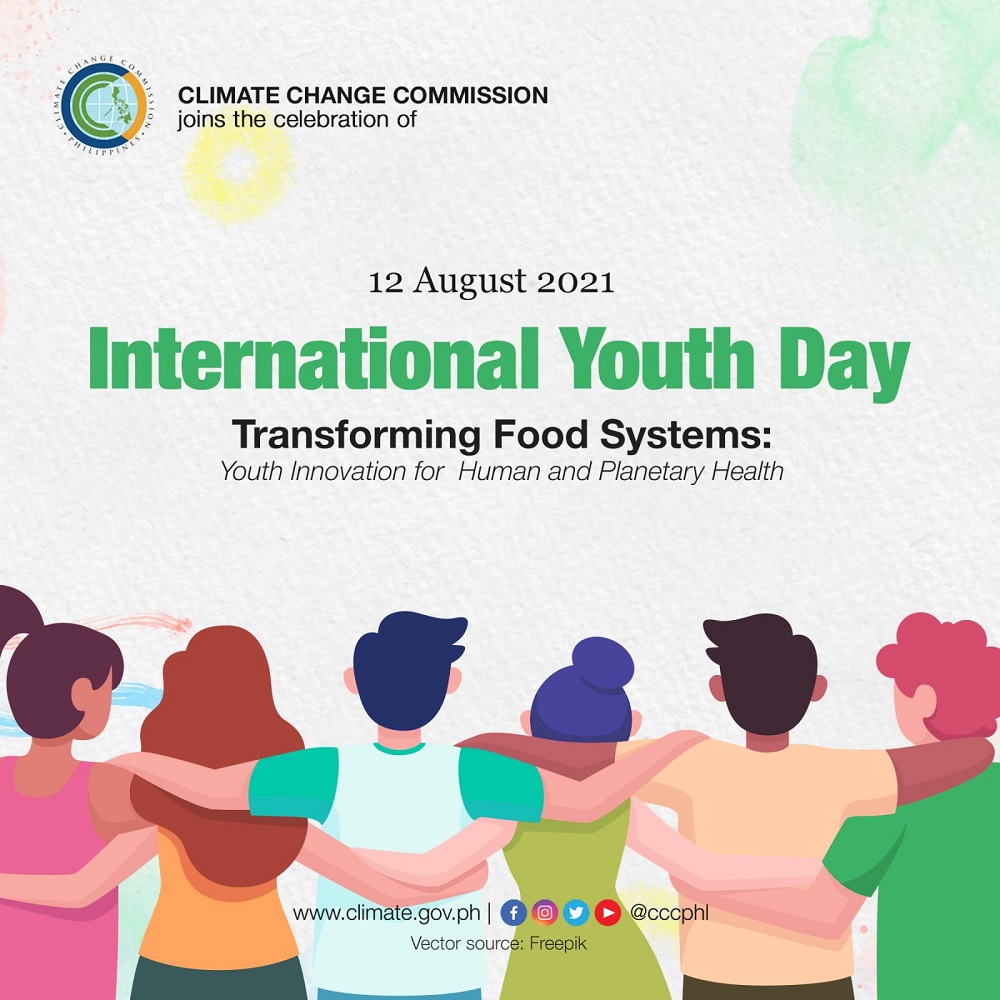
August 11, 2021 Wednesday

MANILA, 12 August 2021 — In observance of “Linggo ng Kabataan” and International Youth Day, the Climate Change Commission (CCC) encourages the Filipino youth to lead in practicing a sustainable lifestyle to help transform our food systems and reduce our carbon footprint.
Republic Act No. 10742 or the Sangguniang Kabataan Reform Act of 2015 mandates the observance of Linggo ng Kabataan in every barangay, municipality, city and province on the week where the 12th of August falls to coincide with the International Youth Day (IYD).
This year’s IYD theme, "Transforming Food Systems: Youth Innovation for Human and Planetary Health," is a call for inclusive support mechanisms for the youth to collectively and individually amplify efforts that restore the planet and protect life, while integrating biodiversity in the transformation of food systems.
With the world’s population expected to increase by 2 billion in the next 30 years, simply producing a larger volume of healthier food will not ensure human and planetary wellbeing. Other crucial challenges must also be addressed, such as the interlinkages embodied by the 2030 Agenda including poverty reduction; social inclusion; health care; biodiversity conservation; and climate change impacts on land and food quality.
Access to abundant, nutritious food has also become a challenge with the COVID-19 pandemic as community quarantines leave many poor communities vulnerable to economic shocks.
The CCC believes that the youth has the power to influence and transform their communities to become more resilient by doing and promoting the following sustainable practices:
Growing plants and vegetables in their own homes to achieve self-sufficiency in every household;
One best example of innovative efforts to transform our food systems was through the emergence of community pantries across the Philippines. The first known community pantry during this pandemic, located in Maginhawa St., Quezon City, was spearheaded by a spontaneous youth initiative.
With the tagline, “Magbigay ayon sa kakayahan, kumuha batay sa pangangailangan,” the idea for the community pantry was to provide a venue where food is directly accessed by those who are in need, especially during this time of lockdown where many businesses closed and jobs lost.
The Maginhawa model has since sparked a nationwide trend of other community pantries sharing grocery packs, farm produce, and even seedlings. These exemplify human compassion and social solidarity that will continue to bring out the best in the Filipino even in the most difficult times.
The CCC said that sustainable food systems are important in ensuring a healthy environment, human health, and national progress. These initiatives will help in the transformation towards a more livable, healthier, and more sustainable nation.